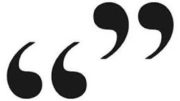As it is coming up to the Jewish festival of Passover or Pesach, which starts at sunset on Monday, I thought that the most appropriate film for this Friday night would be The Ten Commandments.
The classic 1956 Charlton Heston version is not in the public domain so I can’t put up that version but I did find this 2007 version which is very much a fast-moving re-telling of the Exodus story.
For those who are unfamiliar with the Biblical story of the Exodus from Egypt, and to get an idea why it is still important and not only to Jews then this is a very rough precis.
The ancient Israelites in what we believe to be the second millennium BCE were suffering from famine in an area that we now call the Holy Land or Israel and many of their number went down into Egypt to work for the Egyptian Pharaoh. Because of the flooding of the Nile the floodplains of Egypt were fertile and there was plenty of food there. After a while, the old Pharaoh died and the new Pharaoh enslaved the Israelites and they were kept as slaves for 400 years. The Israelites suffered great oppression and poor treatment whilst working as slaves but even worse, had come to see themselves as slaves. As well as being slaves in their bodies, they were also slaves in their own minds.
The Egyptian priests told the Pharaoh that there was about to be born among the Israelites a male child who would grow up to lead the Israelite slaves to successful rebellion. The superstitious Pharaoh ordered all male Israelite babies to be killed in a massacre to stop this predicted Israelite leader from growing up. However, one mother decided that she would not stand by and let her child be killed and his sister put him in a waterproofed basket and floated him off down the River Nile in the hope that he would be picked up by a kindly person and therefore survive. The basket drifted near to where the Pharaoh’s sister was on the river bank and she picked the baby up and adopted it. The baby was named Moses and brought up in the Egyptian Royal family.
Moses grew up as a prince of Egypt with all the advantages that gave a young man. What changed him from being just the spoiled child of privilege was one life-defining incident. One day he was watching the Israelite slaves when he saw a slavemaster mistreating an enslaved and cowering Israelite. Moses attacked the overseer and killed him and ran off into the desert where he is said to have had a vision from God that he would lead the Israelites to freedom and back to the Land of Israel.
Although Moses really doesn’t want the job and doesn’t see himself as qualified to do it, he accepts the command to free the Israelites, returns to the Pharaoh’s palace and demands that the Pharaoh ‘Let my people go’. Pharaoh is stubborn and refuses and 10 appalling plagues befall Egypt culminating in the Death of the Firstborn, where every first-born animal or person died (it is now believed by some that if this happened then it was probably the result of some form of volcanic gaseous poisoning or maybe food contamination). This was the final straw for Pharaoh and he lets the Israelites go and they escape and cross the Sea of Reeds which miraculously parts for the Israelites. They journey into the wilderness and are brought to Mount Sinai where the fractious Israelites are given laws by God by which they should live.
This version of the story is a full on ‘action movie’ telling of the tale of the Exodus, and although nearly three hours long it is pretty gripping. Not all of the film is Biblically accurate, some of the scenes, although true to the spirit of the text, are modern day extrapolations, and some appear to be inspired by Midrashic tales, but this doesn’t hurt the story one bit. It’s still a rattling good yarn. The Exodus story has influenced a whole gamut of liberation movements, and inspiring individuals. It has influenced everyone from the nineteenth century British working class activists, fighting for better working conditions and pay, to Martin Luther King and the American Civil Rights movement that put White and Black people on an equal political footing. There are some stories that gain an influence because they speak to different people in different eras, and the story of the Exodus is one of those tales of power that transcend people and nations.
The fight scenes are well done and the film also explores what it means to go from slavery, where you make no decisions either about yourself or your life, into freedom. The film shows how difficult it must have been for the Israelites who previously had had no agency of their own, now to have to make decisions for themselves. They had to learn to live as a people who governed themselves, rather than a people who were often harshly ruled over. The journey from slavery to freedom is well told in this film and it is this journey that is at the heart of the Passover story. It is marked every spring in Jewish homes all over the world with prayers, the retelling of the story of the exodus, the eating of symbolic foods such as bitter herbs to represent the bitterness of slavery and includes a celebratory meal. It is a time for thanking God not only for the deliverance from Egyptian slavery, so very long ago, but also for making the Israelites into a people which despite oppressions beyond count, has survived.
This film is very relevant today because we should all be aware of those who are still in slavery, still in bondage and still under threat. After watching this film maybe we should all pause and think of all those of minority religions or who are atheists who live under terrible and sometimes murderous oppression in Islamic states where Shariah Law reigns. We should stop and think about those who are oppressed in this way today, people like the Iranian Jews, the Bangladeshi Hindus, the Pakistani Christians, the Sudanese Animists, the Buddhists of Thailand and so many others whose only ‘crime’ is to be non-Muslim in a land where Islam rules supreme. We should also spare a thought for those millions of unwilling Muslims, who are imprisoned and crushed by the Islamic ideology and cannot leave for fear of what may be done to them if they do leave.
The cry ‘Let my people go’ should not be said only for ourselves but for all who are oppressed by harsh or inhuman ideologies, it is as relevant to think of, and hopefully help those that are enslaved under Shariah as it was to think and try to help those oppressed, often until death, by the great and terrible tyrants of the 20th Century. There is also still much traditional slavery and bondage going on today, much if which happens in the Islamic world as a quick websearch will tell you much more about this subject. In parts of the Islamic world, the buying and selling of human beings is not viewed as abhorrent as it would be in civilised countries, but as something that is both religiously permitted and socially accepted.
Every year Jews are commanded to tell the story of the horrors of slavery that they suffered and the ending of this slavery by the rescue of the Exodus. Each Jew is told to see themselves as having been enslaved and then freed, for if they had not been saved from Pharaoh’s slavery, Jews would not exist today. For thousands of years this story has been told and will be told again next week from Tokyo to Toronto and from Anchorage to probably Antarctica. Jews will eat special food for the week of Passover, or 8 days for some Jews outside Israel, unleavened bread to remember that the Jews had to leave in a great hurry, in case Pharaoh changed his mind, which indeed he did, and sent his army after them, till they were drowned in the Sea of Reeds.
I liked this film and found it moving, I do hope you do as well. On a lighter note, keep your eyes peeled in this film for the actor David Schneider, if you don’t know the name then if I say the phrases ‘Smell my cheese’ or ‘Monkey Tennis’ British readers will know what I mean because he’s the other main actor in the famous ‘Alan Partridge’ sketch.
I’d like to wish my Jewish readers a happy and Kosher passover (Chag Pesach Sameach) and as it is Friday night may I wish you a peaceful Sabbath. I’d like to wish everyone else a future of freedom of mind, body and belief.
Anyway, Dayenu (that’s enough), it’s time for the main feature. But before the film, here’s an appropriate song about Freedom.
Now the film.




